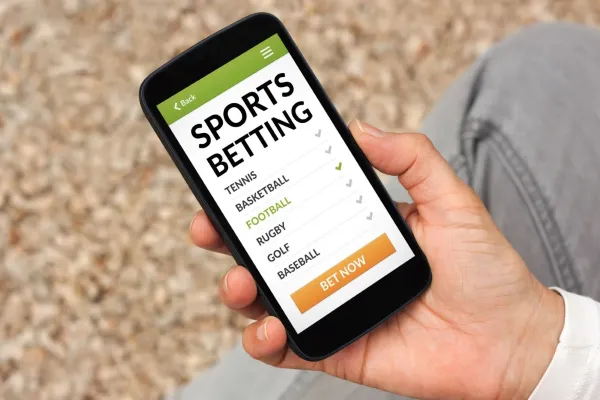Athletic department enforcing NCAA sports gambling rules

by Lauryn Luderman
As of January 2023, sports gambling is legal in Ohio, but that same legalization does not apply to collegiate athletic departments.
The rule is, if a sport is played at the NCAA level, college athletes, staff members and coaches—anyone within the athletic department—is prohibited from betting on that sport.
Kyle Snoke, associate director of compliance in the Ohio State Athletic Department, said since Jan. 1, his team has been educating student-athletes and employees about the new gambling laws. The compliance office works to inform and ensure all individuals involved in Ohio State athletics follow NCAA rules.
“[We] provide education to the student-athletes and the coaches to make sure they understand what they can and can’t do from an NCAA rules perspective,” Snoke said.
Though sports gambling has been legalized in Ohio, the regulations have not changed within any collegiate athletic department. It has, however, become more tempting, courtesy of the growing amount of gambling advertisements, Snoke said.
“They’re being inundated with commercials on TV with Kevin Hart telling them ‘They can get $200 in free bets from DraftKings if they sign up,’” Snoke said. “It’s legal, but for NCAA purposes, it’s still a complete ban on sports gambling.”
If a sport is not sponsored by the NCAA, it is fair game. These include horse racing, NASCAR, mixed martial arts and the UFC, Snoke said. Even if a school does not have a synchronized swimming team, for example, because it is an NCAA sport, it cannot be bet on by any school’s athletic department members.
“I just stay away from all of it as a whole,” Cantor said. “It’s not worth getting caught up in.”
Snoke said any workers—athletic training staff, one-semester interns—must be educated and refrain from wagering in any form, just as a student-athlete is. There are formal presentations detailing all regulations along with constant messages displayed on screens within the athletic facilities.
“If a student-worker or intern happens to be working when we’re over there, they’ll sit in and be a part of the education that we’re providing in person,” Snoke said. “Having messages on a TV screen and stuff like that, again, it’s hopefully catching their eyes as well.”
Sports gambling is not legal to those directly involved for the integrity of the game and to ensure there is no outside influence on how the game turns out, Snoke said. Currently, there is no conversation about retracting this rule, though it is not always logical.
“Do we get to a point where we say, ‘Who cares if they are a member of the women’s swimming team and betting on the NFL,’ like, does that matter?” Snoke asked.
With the NCAA always changing, Snoke said it could be interesting to see where that conversation could go once all states can legally gamble on sports.
In the athletic department, the rules can get gray in certain areas. If a sport is sponsored by the NCAA, it is not allowed to be gambled upon, but the confusion lies in what the term gambling means.
Snoke said there is an “equation” for individuals to follow when they’re not sure:
an entry fee + the opportunity to receive a prize = an NCAA violation.
“When we think of the March Madness basketball tournament, you can go on espn.com or cbssports.com and fill out a bracket, totally for free,” he said. “Because it’s free, it’s not gambling. On the flip side, if you and your family or friends put in $5 to fill out a bracket and the winner gets $100, despite the minimal value, that was gambling.”
Though it is rare, if someone is caught gambling in violation of NCAA’s rules—on any scale—the violation will be investigated. If they are an athlete, their eligibility will be in peril, Snoke said.
Every potential violation is investigated by compliance. Snoke said their department either uncovers violations, one is reported to compliance or they hear from the anonymous tip line.
“Even if it sounds off the wall, or somebody is the opposing team’s fan, we still have to look into it and be like, ‘OK, is this legitimate,’” Snoke said. “So, we investigate everything and if we find a violation, we have to report it to the NCAA.”
Depending on the level of gambling and the value of the wager, eligibility can be reinstated. But until the athlete has undergone the investigation process, they are declared ineligible and unable to participate in any sort of play, Snoke said.
Snoke said there is a much finer line for staff members, coaches and athletic directors, that cannot be crossed, and the consequences could risk future employment at their current institution and elsewhere.
“There’s even less wiggle room, but the severity is going to be like 100 percent no--you are not allowed to wager on sports, and you did it,” Snoke said. “You’re not going to be able to get hired at another school because you’re going to be ineligible from your profession, I guess.”
Student workers are likely to be released from their position in the athletic department if caught gambling on sports.
“It’s been a different, interesting time,” Snoke said. “Gambling has always been part of our education, but it’s never felt more real as a risk.”
